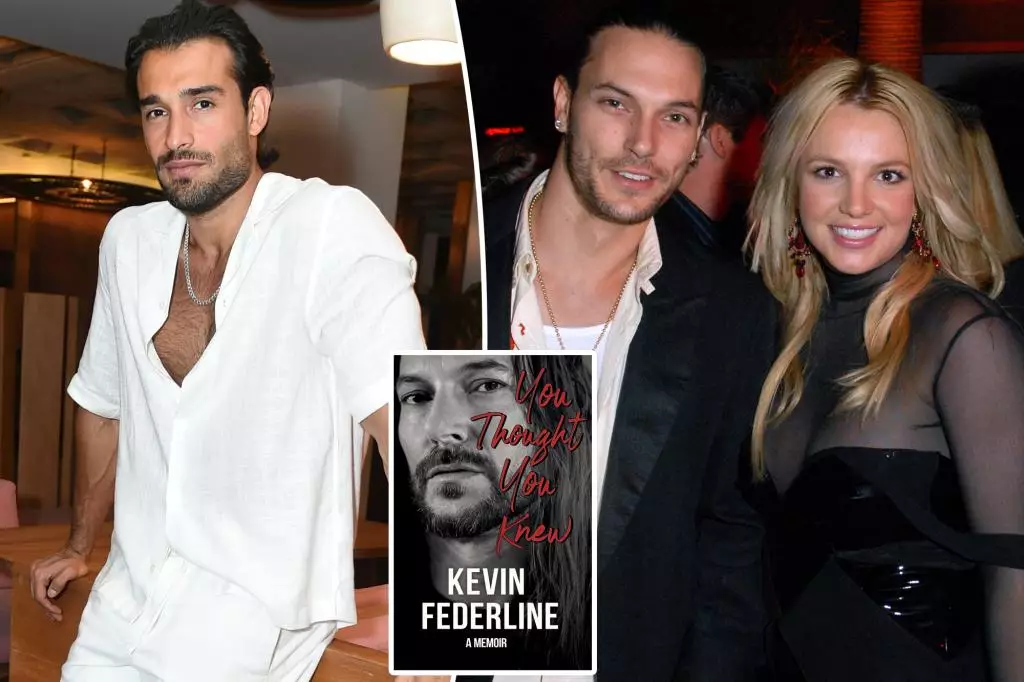In the whirlwind of celebrity gossip, few stories encapsulate the complex web of relationships, egos, and public perception as starkly as the ongoing saga between Britney Spears, her ex-husband Sam Asghari, and Kevin Federline. What initially seemed like personal struggles has now morphed into a broader battleground of narratives, with each party vying to shape their version of truth. Asghari’s pointed remark calling Federline a “professional father” isn’t merely a quip; it reflects a strategy to undermine Federline’s credibility publicly, hinting at underlying tensions and power plays. This exchange underscores how celebrities, especially those embroiled in tumultuous breakups, often weaponize their words to influence public opinion—an act that reveals more about the human desire for relevance and control than about genuine interpersonal relationships.
The question arises: is this battle over the truth or about asserting dominance in a arena where perception often reigns supreme? Federline’s forthcoming memoir, promising a candid peek into his marriage with Britney, has evidently rattled Asghari, suggesting that for him, exposing personal details is also an act of reclaiming agency. In a realm where private life quickly becomes public property, such gestures hint at an inherent struggle to control the narrative, with each individual attempting to portray themselves as the moral high ground amid inevitable controversy.
Motherhood and Image: The Cost of Fame in Personal Battles
At the heart of this saga are their children—innocent bystanders caught in a relentless media storm. Federline’s portrayal of fatherhood, coupled with Spears’s highly publicized struggles, paints a picture of a fractured family network under intense scrutiny. Federline’s memoir isn’t just about reliving past heartbreak—it’s a calculated attempt to define his identity apart from Spears’s shadow. His assertion of having “achieved his biggest dreams” alongside the candid admission of emotional turbulence highlights the turmoil behind the scenes, far removed from the glamorous façade.
Meanwhile, Spears’s journey from childhood stardom to mental health crises and recent divorce epitomizes how fame amplifies personal vulnerabilities. The contrast between her highly controlled public persona and her tumultuous private life raises questions about the societal pressures exerted on female artists. Celebrated for her talent yet scrutinized for her struggles, Spears becomes a symbol of how celebrity culture often commodifies pain. Her brief marriage to Jason Alexander, public crisis, and subsequent marriages further illustrate a relentless pursuit of personal fulfillment amid relentless media voyeurism.
The Power of Personal Narratives: Control in a World of Public Judgment
Both Federline and Asghari’s comments serve as strategic moves in a larger game of personal storytelling. Federline’s decision to write a memoir is a deliberate act to craft his narrative and perhaps set the record straight, while Asghari’s sarcastic comment is an attempt to undermine Federline’s authority as a “professional father.” These exchanges reveal the fragility of personal reputation amid the relentless glare of the spotlight.
Moreover, the evolving relationships—Spears’s marriages, Asghari’s apparent loyalty, Federline’s memoir—highlight how fame turns private pain into public spectacle. Each party leverages their experiences as tools for influence, revealing that personal history often transforms into a battleground for validation and legacy. The social currency here is control: control over one’s story, influence over the public image, and ultimately, over how the world perceives their roles within this fractured family landscape.
By scrutinizing these elite disputes, it becomes clear that celebrity culture fosters a distorted version of intimacy, where even the deepest personal pain becomes fodder for media consumption. The underlying power dynamics hinge on who controls the narrative, and in this game, vulnerability is weaponized, ultimately exposing the fragile veneer of those who are often revered as larger-than-life figures.
In conclusion, the ongoing exchange between Spears’s former spouses exemplifies how celebrity disputes serve as microcosms of broader societal struggles over power, authenticity, and control. As individuals with public personas, their private battles are less about reconciliation and more about positioning—each effort to sway public empathy and shape legacy. In a world that champions the spectacle, personal pain is merely another currency in the relentless pursuit of relevance and influence.
